Resources
High quality infographic templates. Free trial, than paid packages. Can be used to generate ideas to create in other platforms.
Free, short stock videos
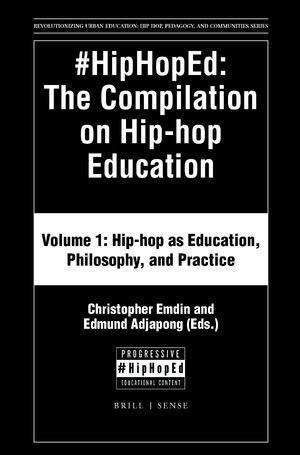
The first volume of #HipHopEd: The Compilation on Hip-hop Education brings together veteran and emerging scholars, practitioners and students from a variety of fields to share their research and experiences as it relates to the use of hip-hop in educational spaces. This text extends the current literature on hip-hop and education and focuses on the philosophy of hip-hop and education, the impact that hip-hop culture has on the identity of educators, and the use of hip-hop to inform mental health practices. Through their personal and practical experiences, authors of this text will spark new and creative uses of hip-hop culture in educational spaces. (From the Publisher)

The teacher's role is changing rapidly throughout the world. Traditional ways of working as a teacher are being challenged and teachers are faced with new areas of expertise they need to manage as educational professionals. These characteristics, challenges, and changes in the teacher’s role have been identified internationally and are both conceptual and practical. Teachers’ work now includes much more than teaching in classrooms and has expanded to designing new learning environments, collaboration and networking with others and mentoring colleagues. The Teacher’s Role in the Changing Globalizing World addresses the significance of considering these issues, researching them, and emphasising the importance of actively influencing and protecting the parameters of the teacher role. (From the Publisher)
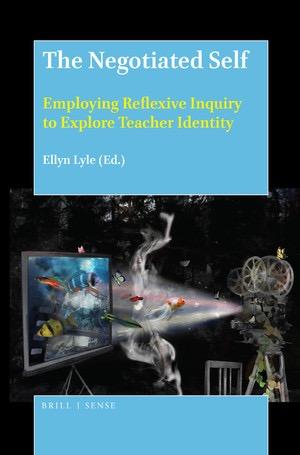
Teacher identity resides in the foundational beliefs and assumptions educators have about teaching and learning. These beliefs and assumptions develop both inside and outside of the classroom, blurring the lines between the professional and the personal. Examining the development of teacher identity at this intersection requires a unique reflexive capacity. Reflexive inquiry is both established and continually emerging. At its most basic, reflexivity refers to researchers’ consciousness of their role in and effect on both the act of doing research and arriving at research findings. In making central the role of the researcher in the research process, reflexive inquiry interrogates agency while examining philosophical notions about the nature of knowledge. While advancements have been made in investigating the relationship between teacher knowledge and teacher practice, the research often fails to connect this meaning with self-knowledge and issues of identity. Through a consideration of these tenets, the authors in this collection embrace critical, qualitative, creative, and arts-integrated approaches to examine ways that reflexive inquiry supports studies in teacher identity. Moving between theory and lived experience, the authors individually and collectively lay bare teacher identity as negotiated while evidencing the epistemological merits of reflexive inquiry. (From the Publisher)
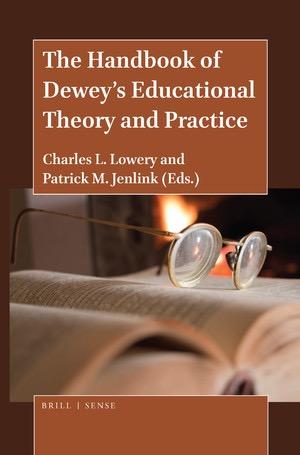
In the last twenty-five years there has been a great deal of scholarship about John Dewey’s work, as well as continued appraisal of his relevance for our time, especially in his contributions to pragmatism and progressivism in teaching, learning, and school learning. The Handbook of Dewey’s Educational Theory and Practice provides a comprehensive, accessible, richly theoretical yet practical guide to the educational theories, ideals, and pragmatic implications of the work of John Dewey, America’s preeminent philosopher of education. Edited by a multidisciplinary team with a wide range of perspectives and experience, this volume will serve as a state-of-the-art reference to the hugely consequential implications of Dewey’s work for education and schooling in the 21st century. Organized around a series of concentric circles ranging from the purposes of education to appropriate policies, principles of schooling at the organizational and administrative level, and pedagogical practice in Deweyan classrooms, the chapters will connect Dewey’s theoretical ideas to their pragmatic implications. (From the Publisher)
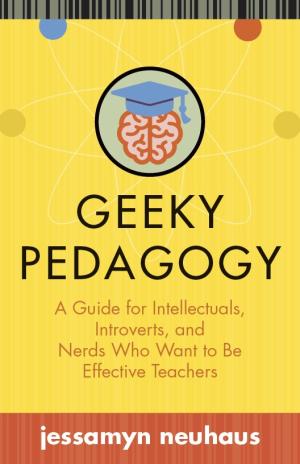
Geeky Pedagogy is a funny, evidence-based, multidisciplinary, pragmatic, highly readable guide to the process of learning and relearning how to be an effective college teacher. It is the first college teaching guide that encourages faculty to embrace their inner nerd, inviting readers to view themselves and their teaching work in light of contemporary discourse that celebrates increasingly diverse geek culture and explores stereotypes about super-smart introverts. Geeky Pedagogy avoids the excessive jargon, humorlessness, and endless proscriptions that plague much published advice about teaching. Neuhaus is aware of how embodied identity and employment status shape one’s teaching context, and she eschews formulaic depictions of idealized exemplar teaching, instead inviting readers to join her in an engaging, critically reflective conversation about the vicissitudes of teaching and learning in higher education as a geek, introvert, or nerd. Written for the wonks and eggheads who want to translate their vast scholarly expertise into authentic student learning, Geeky Pedagogy is packed with practical advice and encouragement for increasing readers’ pedagogical knowledge. (From the Publisher)
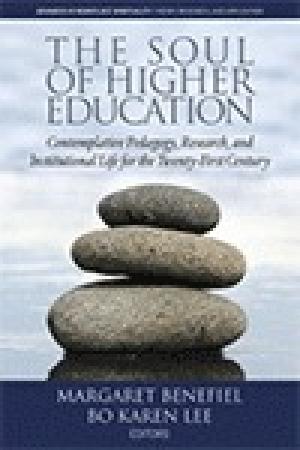
The Soul of Higher Education: Contemplative Pedagogy, Research and Institutional Life for the Twenty-first Century contributes to an understanding of the importance and implications of a contemplative grounding for higher education. It is the sixth in a series entitled Advances in Workplace Spirituality: Theory, Research and Application, which is intended to be an authoritative and comprehensive series in the field. This volume consists of chapters written by noted scholars from both Eastern and Western traditions that shed light on the following questions: • What is an appropriate epistemological grounding for contemplative higher education? How dues the current dominant epistemology in higher education mitigate against contemplative teaching, learning, and research? What alternatives can be offered? • How can a contemplative culture be nurtured in the classroom? What difference does that culture make in teaching and learning? What is the role of individual and institutional leadership in creating and sustaining this culture? • What is contemplative research? How can the emerging field of contemplative studies fit into the twenty-first-century university? • What can faculty and students learn from contemplative practices about how to find peace of mind in a world of higher education characterized by increasing complexity, financial pressures, and conflicts? • What does a contemplative organizational structure look like in higher education? How can committees, faculty meetings, and administrative teams use contemplative practices to work more effectively together? • How can contemplative decision-making processes be used in higher education? Given hierarchies, turf wars, and academics’ propensity for using argument as a weapon, is it possible to introduce contemplative practices into decision-making situations in appropriate ways? (From the Publisher)
Online platform for digital text sharing; integration with Canvas and other LMS. Students annotate the readings and asynchronously respond to each other's comments and questions about the readings in context.
Creative commons background patterns.
Wabash Center Staff Contact
Sarah Farmer, Ph.D.
Associate Director
Wabash Center
farmers@wabash.edu